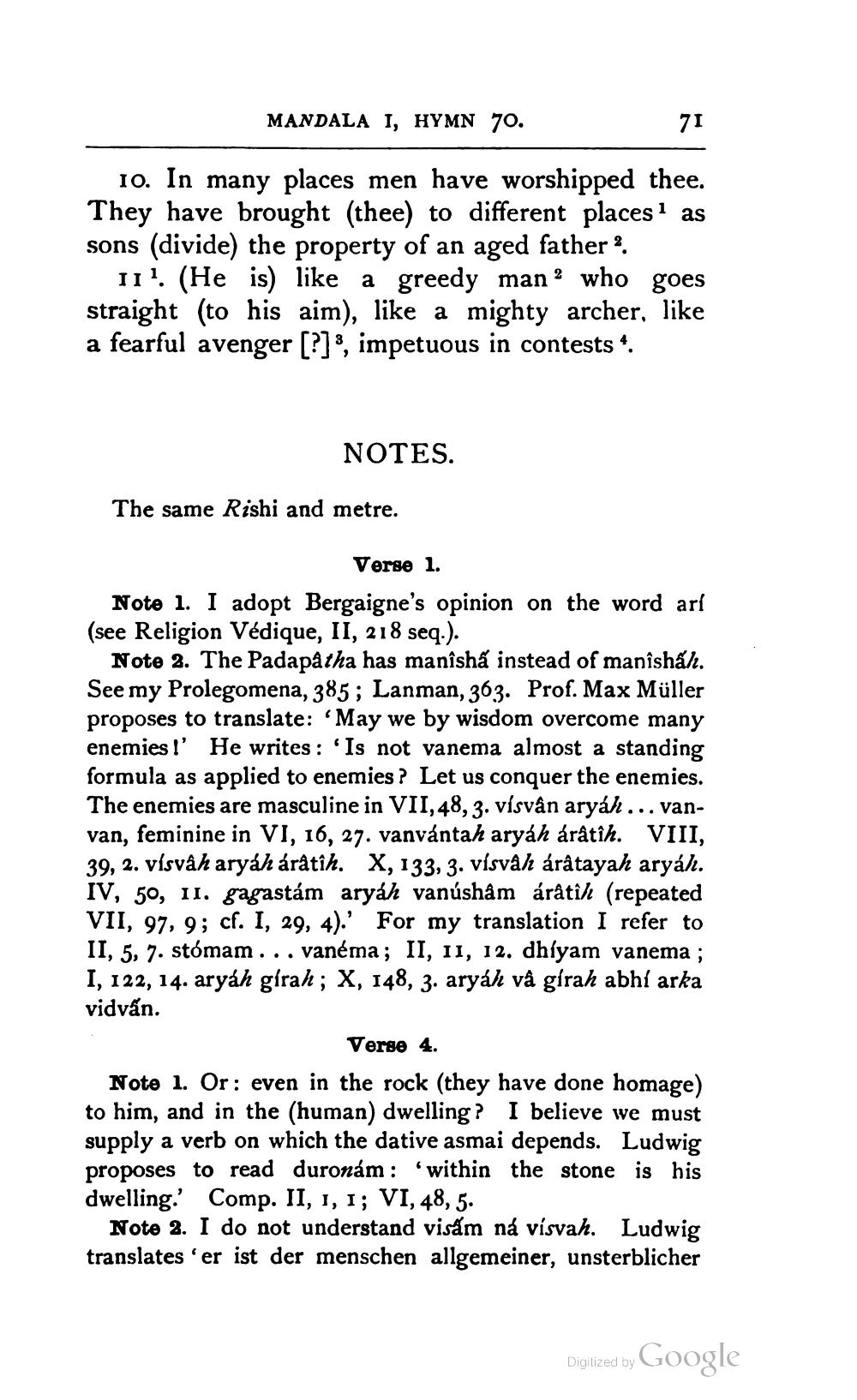________________
MANDALA I, HYMN 70.
71
10. In many places men have worshipped thee. They have brought (thee) to different places 1 as sons (divide) the property of an aged father 2.
11! (He is) like a greedy man? who goes straight (to his aim), like a mighty archer, like a fearful avenger [?], impetuous in contests “.
NOTES.
The same Rishi and metre.
Verse 1. Note 1. I adopt Bergaigne's opinion on the word ari (see Religion Védique, II, 218 seq.).
Note 2. The Padapatha has manisha instead of manîshảh. See my Prolegomena, 385; Lanman, 363. Prof. Max Müller proposes to translate: 'May we by wisdom overcome many enemies !' He writes: 'Is not vanema almost a standing formula as applied to enemies ? Let us conquer the enemies. The enemies are masculine in VII, 48, 3. vísvân aryah ... vanvan, feminine in VI, 16, 27. vanvántah aryáh árâtih. VIII, 39, 2. vísvâh aryáh áratih. X, 133, 3. vísvåh árâtayah aryáh. IV, 50, II. gagastám aryah vanúshâm árâtih (repeated VII, 97, 9; cf. I, 29, 4).' For my translation I refer to II, 5, 7. stómam... vanéma; II, 11, 12. dhiyam vanema ; I, 122, 14. aryah girah; X, 148, 3. aryáh và girah abhí arka vidvan.
Verse 4. Note 1. Or: even in the rock (they have done homage) to him, and in the (human) dwelling? I believe we must supply a verb on which the dative asmai depends. Ludwig proposes to read duronám: 'within the stone is his dwelling. Comp. II, 1, I; VI, 48, 5.
Note 2. I do not understand visām ná vísvah. Ludwig translates 'er ist der menschen allgemeiner, unsterblicher
Digitized by Google




